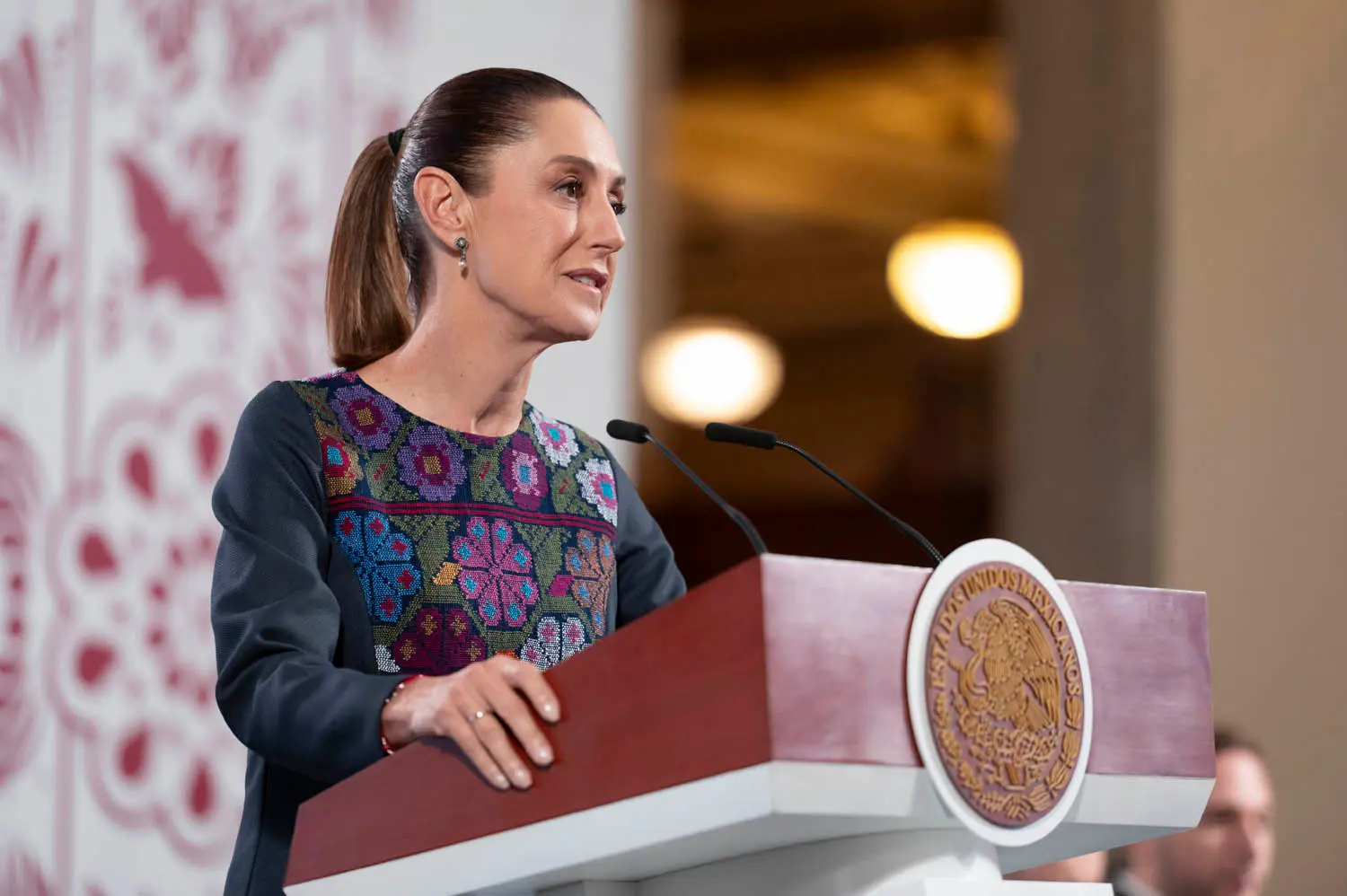
SUMMARY
Explosion in Iztapalapa: President’s Solidarity and Coordinated Medical Care for Victims
President Sheinbaum expressed her concern over the explosion of a gas tanker in Iztapalapa that left 4 dead and 90 injured, and called for establishing tracking measures in fuel transportation. The Mexican Social Security Institute (IMSS) reported 26 patients treated, ISSSTE received 32, and IMSS Bienestar activated an emergency command for 27 injured persons. The President reiterated that medical care in public hospitals is free, while the company responsible for the incident will cover the cost of the damages.
Increase in IEPS on Soft Drinks and Cigarettes: Public Health Measure with Funds to Strengthen the System
Deputy Minister of Health Eduardo Clark announced that in 2026 the special excise tax (IEPS) on soft drinks will rise from 1.65 to 3.1 pesos per liter (US$0.09 to US$0.17), generating 41 billion pesos (US$2.21 billion) for the healthcare system. Mexico, with per capita consumption of 166 liters per person per year, is the world’s largest consumer of these beverages, the main source of sugar in the diet.
The measure, already in effect in more than 119 countries and which has reduced consumption in Mexico by 9.7% since 2014, aims to further decrease it by an additional 7%, in order to prevent obesity, diabetes, and hypertension, and lower public spending on these diseases. The funds will be allocated to healthcare, prevention, and education.
New National Health Strategy
Minister of Health David Kershenobich Stalnikowitz presented the comprehensive health care strategy based on four main pillars:
The goal is to reduce the incidence of chronic diseases, guarantee access to state-of-the-art treatments, and strengthen the healthcare system’s capacity to save lives and improve the population’s quality of life.
Healthcare Measures Are Social Equalizers and a Historic Advance
IMSS Director Zoé Robledo emphasized that the new healthcare strategies act as social equalizers by guaranteeing universal access to equipment such as glycated hemoglobin testing and glucose monitoring patches to control diabetes, hypertension, and kidney failure.
ISSSTE Director Martí Batres stressed the importance of these measures, noting that 40% of their beneficiaries are over 60 years old, a group with high demand for medications for these diseases.
IMSS-Bienestar Director Alejandro Svarch described the measure as “a day of celebration for the country,” calling it educational for society and an incentive for the industry to offer healthier products.
Córdova Case in the Court’s Hands; Government Proposes Cutting Judicial Budget by 15 Billion Pesos
President Claudia Sheinbaum said that the injunction sought by Lorenzo Córdova charging discrimination is solely under the jurisdiction of the Supreme Court, and that the executive branch will not be intervening.
She noted that the judicial branch budget was submitted by the previous administration with an excessive increase and proposed that Congress cut it by 15 billion pesos (US$810,000) to reassign funds toward infrastructure, healthcare, education, or the National Institute of Anthropology and History (INAH).
From INSABI to IMSS Bienestar: Centralization for a More Efficient Healthcare System
The President announced a review of INSABI’s (Institute of Health for Wellbeing) irregularities, such as ventilator purchases and Segalmex cases, while clarifying the institution was not a disaster. She compared its operation to Seguro Popular, where funds were approved by Congress but managed by the states, limiting service capacity. After the pandemic, IMSS Bienestar was created to centralize resources and services, consolidating a more coordinated national system.
Electoral Reform Without Immediate Proposal
Sheinbaum clarified that there is no immediate Electoral Reform proposal, though she acknowledged dissatisfaction with spending funds on proportional representation seats. The President explained that the intent is not to eliminate minority representation but to reduce costs. She emphasized the National Electoral Council (INE)’s autonomy, as well as maintaining the voter registry and nominal list, ensuring free and transparent elections.
Tariffs with Dialogue and Plan Mexico as a National Economic Strengthening Project
The President explained that tariffs on vehicles and products from countries such as China and South Korea will be applied following a diplomatic dialogue, without causing conflicts. She noted this is part of Plan Mexico, introduced before Trump’s election, and it is not a decree but a proposal to Congress. She emphasized that the plan has support from productive sectors, business associations, and workers as a domestic project to strengthen the economy.
Banks Will No Longer Deduct Contributions to IPAB; Fair Measure Without Impact on Users
The President reported that eliminating the deductibility of payments to the Bank Savings Protection Institute (IPAB) will amount to 10 billion pesos (US$540 million), a previously excessive benefit that will now reduce banks’ profits. In 2024, banks earned 288 billion pesos (US$15.53 billion) and most support the measure. She explained that interest rates and fees will not increase and noted that contributions to similar funds are also non-deductible in the United States and Canada.
At THE Mexico City International Airport, personnel from the ministries of National Defense, the Navy, Security and Citizen Protection, the National Guard, and the Federal Attorney General’s Office participated in an operation that led to the arrest of Oscar Antonio Álvarez González, considered the New Generation Jalisco Cartel (CJNG)’s chief financial operator.
Alvarez is considered to be a money launderer working for Rubén Oseguera Cervantes, alias “Mencho,” and Abraham Oseguera Cervantes, alias “Rodo,” through the purchase of property and companies in the tequila and livestock sectors. It is known that Álvarez is responsible for handling property name changes with the support of public notaries located in various municipalities in Jalisco.
Oscar Antonio Álvarez González has an outstanding arrest warrant for charges involving organized crime and operations with funds from illicit sources.
Related: Morning Presidential Press Conference. Wednesday, September 10, 2025